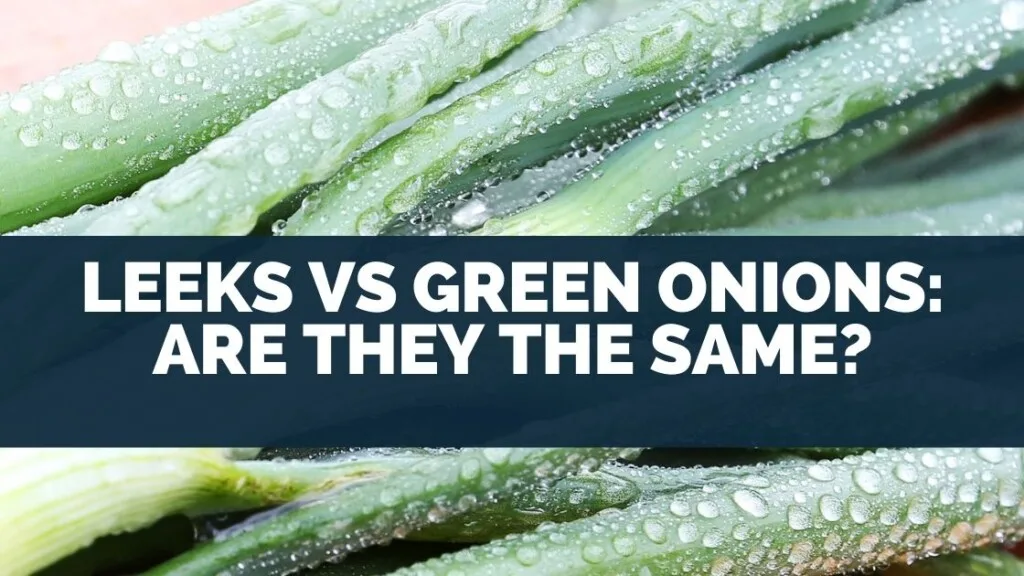
Believe it or not, leeks and green onions aren’t the same things! Though they’re both delicious, many people don’t know this.
While they are both great for adding flavor to dishes, understanding their tastes and uses may help you make a better decision when shopping.
We’re going to be talking about the similarities and differences between leeks and green onions, so you can confidently use them in your cooking!
Table of Contents
1. Leeks vs Green Onions
Leeks are a popular ingredient in Asian cuisine. Their flavor and texture lend themselves to be versatile when it comes down to how they can enhance different dishes from Chinese food such as fried rice, stir fry vegetables, etc…
Still, there is no doubt that their original use was for cooking within South East Asia, including countries like Thailand, where this vegetable originated from before spreading throughout India & China.
They have thick dark green leaves at the top part of the plant and get lighter as it grows!
Green onions are a part of the onion family and can be found in many grocery stores. T
hey also grow well in a garden themselves, and their scallions produce multiple sets of bulbs every year. Green onions are harvested when they’re still young and short in height but have round-shaped bulbs that connect to slim green stalks.
People worldwide use green onions in their fresh dishes and processed foods.
Green onions taste like a more savory, stronger version of your typical onion.
They are versatile in cooking because you can use the white base of the vegetable for soups and stews or chop up the green parts to put on sandwiches and salads. Green onions are easy to grow if you have some extra garden space.
If not, they can be bought at just about any grocery store. These onions originate from the Mediterranean and Asia, and have been used since ancient times. They are most popular in Asian cuisine and can even be found growing in many gardens over there too!
2. What Are Their Health Benefits
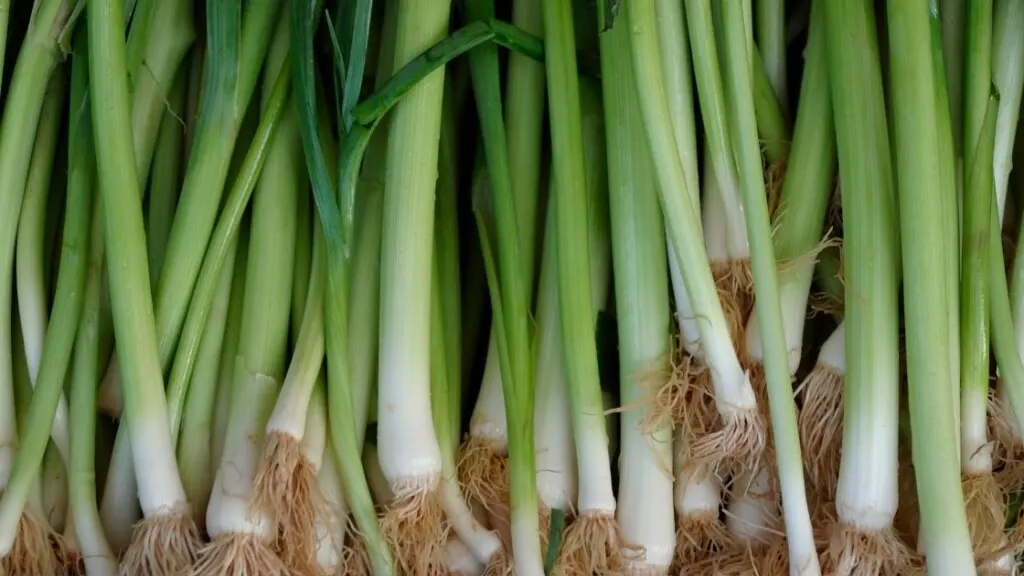
Leeks are packed with vitamins and minerals such as folate, potassium, vitamin A and C.
The green part of leeks is also rich in chlorophyll which has antioxidant properties and aids detoxification of the body. There are also other antioxidants in leeks that help boost the immune system.
Leeks are also suitable for indigestion and heartburn as they help to neutralize stomach acid. They contain fiber which helps move food quickly through your digestive tract.
They also have a calming effect on the intestinal tract, helping to reduce straining during a bowel movement or other discomforts such as gas, bloating, and cramping.
Green onions are good for you because they are full of vitamins and minerals. Also, green onions are low-calorie. Green onions are perfect for your health because they can help with colds, reduce cholesterol levels, manage diabetes mellitus effectively, improve the function of the immune system, treat asthma symptoms naturally and prevent eye diseases like cataracts.
Green Onions contain water, vitamin C, vitamin B6, and potassium. They also have small magnesium, dietary fiber, calcium, phosphorus, and copper.
Green Onions are very low in Cholesterol and Sodium. They are also a good source of Dietary Fiber, Vitamin A, Vitamin K & Folate, so they’re jam-packed with nutrients that your body needs on a day to day basis!
3. How Are They Grown
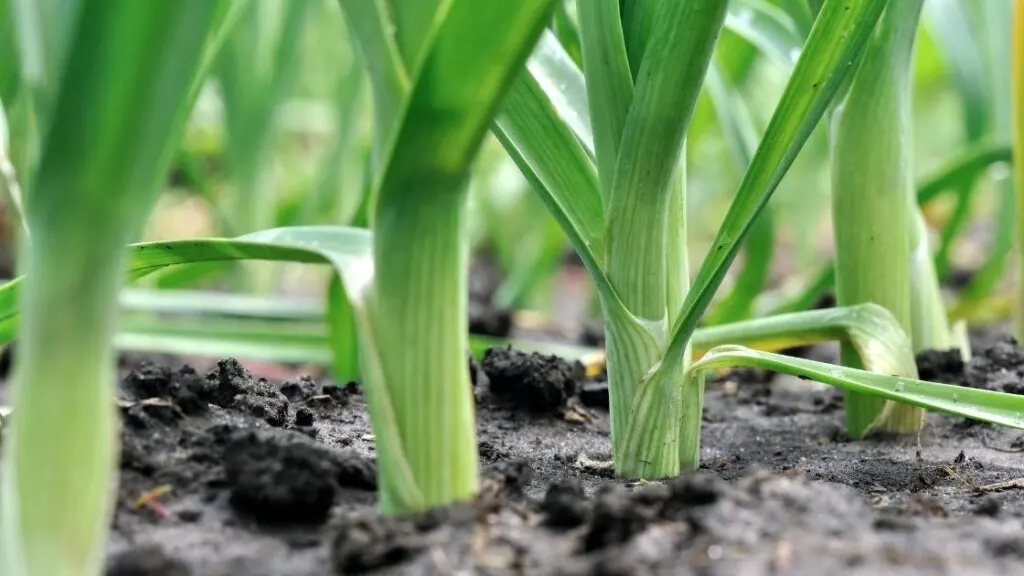 Green onions are grown by cutting a portion of a plant and leaving the roots, eventually growing new leaves. The green onion plant is harvested for its stalks, cooking, or salad greens.
Green onions are grown by cutting a portion of a plant and leaving the roots, eventually growing new leaves. The green onion plant is harvested for its stalks, cooking, or salad greens.
Tall green onions with brown scales along the lower part of the stems are 80 to 90 days from transplanting, while shorter types take 60 to 70 days. Green onions are the type of plant that does best when growing them outdoors because it requires a lot of sunlight.
However, if you don’t have access to an outdoor garden but have a window, you could still grow the plant by keeping it super close to the window!
Leeks are grown by planting seeds or sets (small leeks) about an inch deep and two to three inches apart. They are slow to germinate, so be patient. Once they have emerged, keep them weed-free and well-watered until they are large enough to thin out.
Thin them out at about six inches apart – this will allow maximum growth.
As the leeks grow, mound the soil up around them. That will be an advantage for you come harvest time as they are less likely to snap when you’re harvesting them.
The leeks should grow to maturity in about eight months, depending on your climate.
The best part about Leeks is that they don’t need direct sunlight to grow, so even if you have no access to any windows, you can grow this in your tiny kitchen garden too!
4. How Are They Prepared
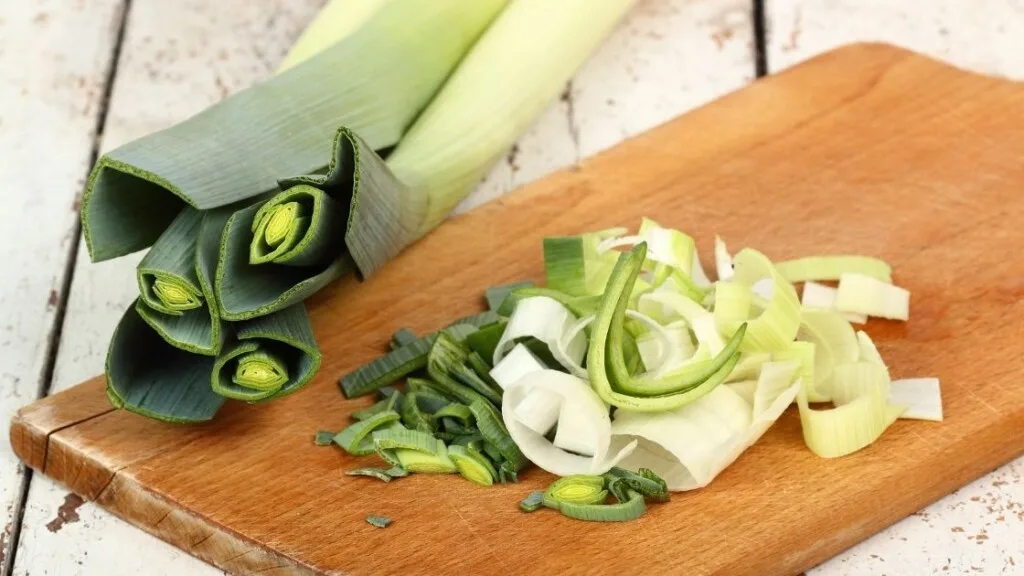
Leeks are cooked by boiling in water the same way as you would cook other vegetables. However, leeks are much more flavourful when cooked by steaming them because it brings out their natural sweetness. Or if you’re feeling adventurous, you can eat them raw too!
To cook green onions, you simply add the green onions to whatever you are cooking, much like a regular onion. Green onions can be eaten in salads or alone as a vegetable side dish. To finish the overall meal, they can act as the milder onions you might need in a dish or a crunchy garnish!
Key Takeaway about Leeks vs Green Onions :
Leeks and Green onions might be thought of being the same, but now you’ll be aware of all the differences between the two greens! Green onions are milder than leeks and have a more onion-like taste. On the other hand, Leeks can be stronger in flavor with an earthy quality to them that some people love!
The next time you’re out shopping for vegetables or cooking dinner, remember these differences, so you don’t get confused about what is best for your needs.
Have any of our readers tried using green onions instead of leeks? Let us know how it turned out below!

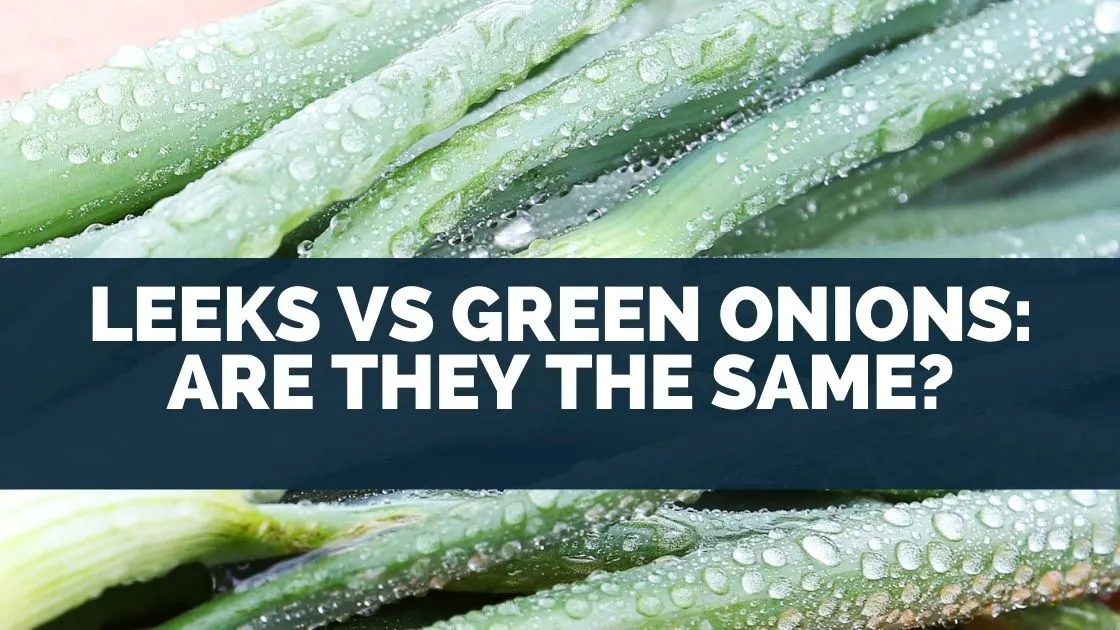
Leave a comment